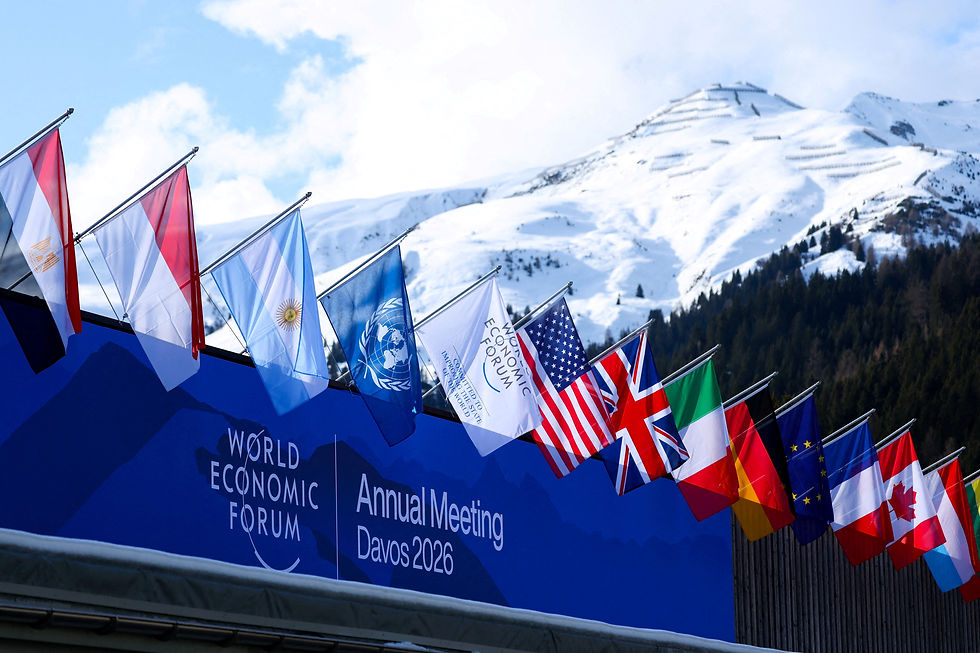The Endgame: Climate News - May 2025
- May 28, 2025
- 4 min read
Climate Momentum Is Real - But So Are the Roadblocks

China’s emissions are finally falling thanks to clean energy. The UK is making rooftop solar mandatory. Paris is redesigning its streets and cutting pollution in half.
But there are real setbacks too - like stalled battery projects in the U.S. and climate data disappearing with melting ice.
This edition of The Endgame breaks down the biggest wins, the toughest roadblocks, and the signals you should be watching. Because the race to decarbonise is accelerating—and we’re here to help make sense of it.
The good 👇🏻
🇨🇳 China’s Emissions Just Peaked - for Real This Time
China’s CO₂ emissions have fallen for the first time because of clean energy, not economic slowdown - down 1% over the past year, with a sharper 1.6% drop in Q1 2025. Power sector emissions plunged 5.8% as China deployed more renewables in 2024 than the rest of the world combined.
Why it matters: This could mark the start of a structural decline, driven by solar, wind, hydro and nuclear momentum. But the long-term trajectory depends on China’s next five-year plan - and how it navigates a hostile U.S. trade stance. Still, for the world’s top emitter, it’s a landmark shift—and a sliver of hope in a record-emissions world.
Source: Carbon Brief
🏡 England Mandates Solar - Lower Bills Incoming
England will require solar panels on all new homes by 2027, adding about £3-4k to build costs but cutting energy bills by over £1,000 annually. Government loans and grants are planned to help retrofit existing homes with solar. Climate campaigners praise the move as a smart way to save energy and money, while unions call for more investment to protect jobs in the transition.
Why it matters: This move signals the government’s firm commitment to net zero, despite former PM Tony Blair’s criticism calling current policies “irrational” and doomed to fail.
Source: The Guardian
🚴🏼♂️ Paris Proves Cities Don’t Need Cars
Paris has dramatically cut car traffic over 20 years, swapping roads and parking for bike lanes and green spaces. This shift slashed air pollution - PM 2.5 down 55%, nitrogen dioxide 50% - making the city’s air visibly cleaner.
Why this matters: Led by Mayor Anne Hidalgo, the city is betting big on walkability. Despite backlash, policies like turning 500 streets pedestrian-only keep winning support. Paris shows that bold urban design can boost public health and quality of life... fast.
Source: The Washington Post
The challenges 👇🏻
⛔️ U.S. Grid Batteries: High Hopes, Higher Headwinds
The $100B push to scale grid storage in the U.S. is colliding with tariffs and tax-credit uncertainty. Trump-era trade barriers and political threats to the IRA are spooking investors, slowing deployment.
Why it matters: Without stable policy, the industry risks trading momentum for maybes - and ceding the market right back to China. Storage demand is booming - but the economics just got a whole lot trickier.
Source: Canary Media
🥶 Melting Ice, Vanishing Data
As Arctic glaciers melt at record rates, scientists are racing to extract and preserve ice cores - vital archives of Earth’s atmospheric history. Researchers are now testing whether damaged cores can still yield usable signals, using tracer dyes and melt simulations.
Why this matters: With up to half of the world’s glaciers at risk this century, salvaging these data is a race against irreversible loss. Meltwater intrusion is distorting the chemical and gas records these cores hold, threatening the integrity of climate proxy data.
Source: Carbon Brief
💨 UK Gas Storage on the Brink
Centrica’s CEO warns the UK’s biggest gas storage site faces shutdown without government support to unlock £2bn investment. The firm seeks a “cap and floor” pricing deal to stabilize revenues and boost storage, including hydrogen.
Why it matters: This site currently provides half the UK’s gas storage capacity but is losing £100m this year. Without the site, UK gas reserves drop from 12 to 6 days, risking energy security particularly in current geo-political circumstances. This is just further justification for a push towards electrification.
Source: BBC
Ones to watch 👇🏻
🌊 Tidal Power Scales in Normandy
France is building one of Europe’s largest tidal energy farms off Normandy, using four massive 3MW underwater turbines to harness the powerful Raz Blanchard tidal currents. Set to power 15,000 locals by 2028, the project aims to generate clean energy while creating 400 jobs and boosting France’s blue economy.
Why it matters: Backed by €31 million from the EU Innovation Fund, it promises minimal marine impact and could supply electricity to millions in the future. This tidal pilot marks a big step toward France’s decarbonisation goals and energy sovereignty.
Source: EuroNews
👩🏻🔬 Europe Courts U.S. Climate Talent
Europe is ramping up efforts to attract top US researchers, offering competitive salaries and funding incentives - especially as political shifts in the US tighten research opportunities. While Switzerland leads on pay, other countries vary widely, balancing lower salaries with cheaper living costs and growing R&D budgets.
Why it matters: Europe’s push could shift the global talent map and accelerate innovation in green tech. With the EU aiming to boost R&D spending to 3% of GDP by 2030, watch this space - climate science may find a new hotspot across the Atlantic soon.
Source: Sifted
🙅🏼♂️ Climate Tech Pivots to Defence
Climate tech’s VC buzz has cooled sharply since its pandemic peak, with funding dropping over 55% in 2024. Meanwhile, defence tech is booming, up 400% in Q1, driven by geopolitical tensions and government spending. Many climate startups are pivoting to defence, highlighting dual-use tech like batteries and ocean data that serve both sectors.
Why it matters: This shift opens new capital channels but challenges include brand repositioning and investor fit, especially for ESG-focused funds. Defence budgets offer stable, counter-cyclical revenue, making the pivot a smart survival strategy. When climate regains spotlight, these startups could be well-positioned for a comeback.
Source: Pitchbook
Stay sharp. Stay optimistic. The momentum is real.
Follow The Endgame for the signals that matter most in the race to decarbonize.






